FFmpeg vs. HandBrake: Which Video Converter is Better for You
In the digital age, video conversion is a common task. Whether you need to convert a video for playback on a specific device, compress its size for storage, or change its format, a video converter is essential. Two popular choices for video conversion are FFmpeg and HandBrake. But which one is right for you? This comprehensive guide delves into the world of FFmpeg vs. HandBrake, exploring their functionalities, strengths, weaknesses, and ideal use cases, to help you pick the perfect tool for your needs.
Part 1: What is FFmpeg and HandBrake?
FFmpeg:
FFmpeg stands for "FFmpeg Multimedia Framework." It's a powerful, free, and open-source command-line tool capable of a wide range of multimedia tasks, including video and audio conversion, encoding, decoding, streaming, muxing, demuxing, filtering, and scaling. FFmpeg supports a vast library of codecs and containers, making it incredibly versatile.
Pros:
- Highly flexible: Offers granular control over conversion parameters for advanced users.
- Supports a vast array of formats: Handles various video and audio codecs and containers.
- Free and open-source: No licensing costs or limitations.
- Command-line interface: Efficient for batch processing and scripting.
Cons:
- Command-line interface: Can be intimidating for beginners with no prior experience.
- Steep learning curve: Mastering FFmpeg requires time and effort to understand the complex commands.
- No graphical user interface (GUI): Demands users to memorize or reference command syntax.
HandBrake:
HandBrake is a free and open-source video transcoder specifically designed for converting DVDs and video files to common, device-friendly formats like MP4. It boasts a user-friendly graphical user interface (GUI) that simplifies video conversion for non-technical users.
Pros:
- User-friendly GUI: Easy to navigate for those unfamiliar with command lines.
- Presets for popular devices: Simplifies conversion by preconfiguring settings for specific devices.
- DVD ripping capabilities: Rips video content from DVDs for digital storage.
- Straightforward interface: Streamlines the conversion process for basic needs.
Cons:
- Less flexible than FFmpeg: Offers limited control over conversion parameters.
- Fewer supported formats: Supports a smaller range of codecs and containers compared to FFmpeg.
- Slower processing times: May be slower than FFmpeg for certain tasks.
Part 2: FFmpeg vs. HandBrake: A Fundamental Difference
Functionality:
At its core, the biggest difference between FFmpeg and HandBrake lies in their functionality. FFmpeg is a comprehensive multimedia framework offering a wide range of capabilities beyond video conversion. It allows for advanced tasks like format demuxing, filtering, and scaling, making it suitable for professional and technical use cases.
In contrast, HandBrake focuses solely on converting video files and ripping DVDs. Its user-friendly interface streamlines basic conversion tasks but lacks the power and flexibility of FFmpeg for advanced functionalities.
Supported Formats:
FFmpeg reigns supreme in terms of supported formats. It boasts an extensive library of codecs and containers, allowing you to convert virtually any video or audio file format you encounter. This makes it ideal for handling complex conversion tasks involving fewer common formats.
HandBrake, while supporting a variety of popular formats like MP4, MKV, and H.264, offers a more limited selection compared to FFmpeg. It primarily focuses on converting videos for playback on devices like smartphones and tablets, supporting only the most widely used codecs and containers.
Performance and Speed:
FFmpeg can be faster than HandBrake for specific tasks due to its more direct approach. However, performance can vary depending on the complexity of the conversion and the hardware used.
HandBrake's user interface can introduce some overhead during processing. However, its preconfigured settings often optimize speed for basic conversions.
Applicable Scenarios:
Choose FFmpeg when:
- You need advanced control over conversion parameters.
- You work with less common video and audio formats.
- You perform batch conversions or scripting with automation.
- You require additional functionalities like demuxing, filtering, or scaling.
Choose HandBrake when:
- You're a beginner unfamiliar with command lines.
- You need to convert videos for playback on specific devices.
- You prioritize a user-friendly interface and preconfigured settings.
- You require basic video conversion without advanced features.
Bonus Tips: Best Alternatives to FFmpeg and HandBrake - HitPaw Univd (HitPaw Video Converter)
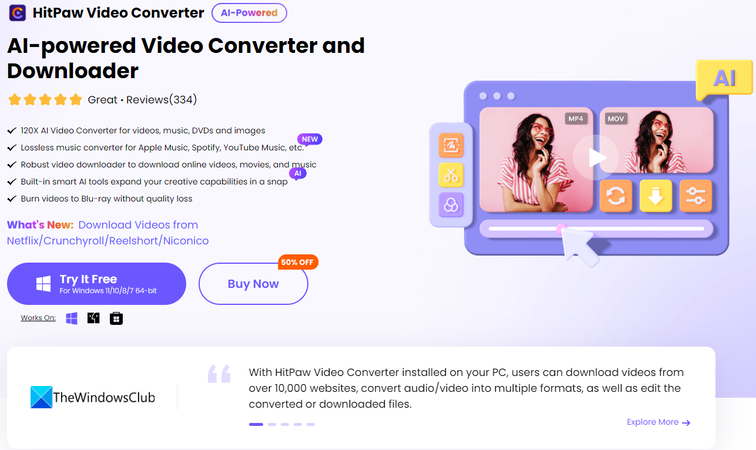
HitPaw Univd offers a compelling alternative to both FFmpeg and HandBrake. It combines the power of FFmpeg with the user-friendliness of HandBrake, providing a well-rounded solution for video conversion tasks. You can take a closer look at HitPaw Univd in the video below.
Here's why HitPaw Univd stands out:
Main Features:
- Intuitive User Interface: HitPaw Univd boasts a clean and modern interface that's easy to navigate, making it suitable for both beginners and experienced users.
- Extensive Format Support: Similar to FFmpeg, HitPaw Univd supports a wide range of video and audio formats, including popular options like MP4, MKV, AVI, MOV, FLV, and more. This ensures compatibility with virtually any device or platform.
- Presets and Customization: HitPaw Univd offers preconfigured settings for popular devices like smartphones, tablets, and gaming consoles, simplifying conversions for specific playback needs. Additionally, it allows for fine-tuning parameters like resolution, bitrate, frame rate, and encoder for advanced users.
- Batch Processing: HitPaw Univd streamlines your workflow by allowing you to add multiple video files for conversion in a single batch, saving you time and effort.
- High-Speed Processing: HitPaw Univd leverages hardware acceleration to achieve fast video conversion speeds, making it ideal for processing large video files.
- Additional Features: Beyond basic conversion, HitPaw Univd provides additional functionalities like video editing (trimming, cropping, adding watermarks), subtitle management, and even video downloading from online platforms.
How to Convert Video Using HitPaw Univd
Step 1:
Download and install HitPaw Univd from the official website.
Step 2:
Launch HitPaw Univd and click "Add Files" to browse your computer and select the video file you want to convert. Alternatively, you can drag and drop the video file directly into the software window.
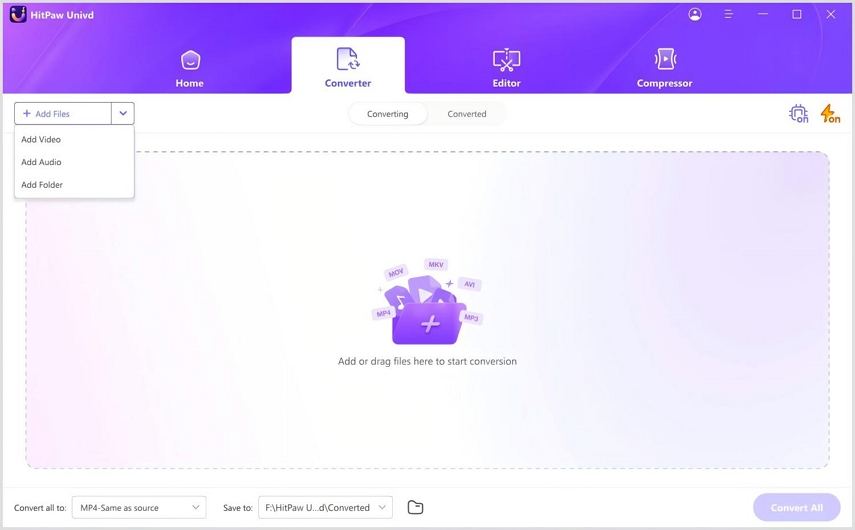
Step 3:
Select the desired output format from the "Convert all to" dropdown menu. HitPaw Univd provides a wide range of format options alongside presets for various devices.
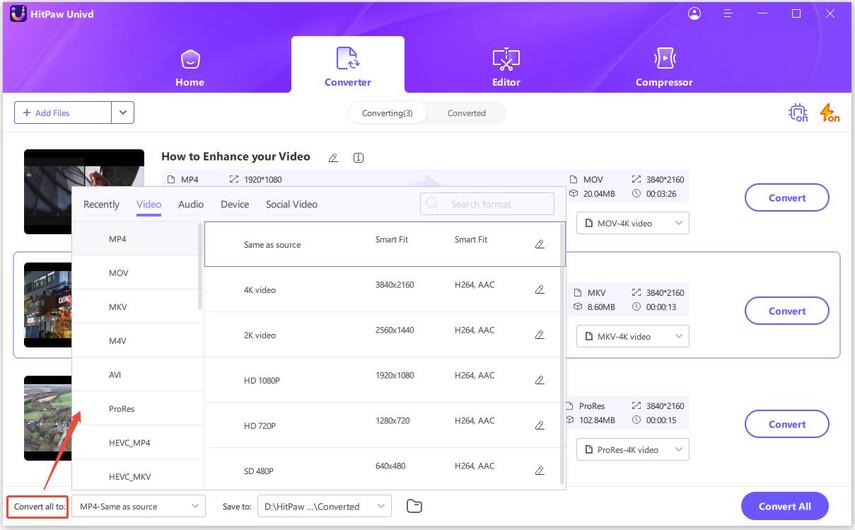
Step 4:
For advanced users, click the "Settings" icon next to the output format to access a detailed menu where you can adjust parameters like resolution, bitrate, frame rate, and encoder settings.
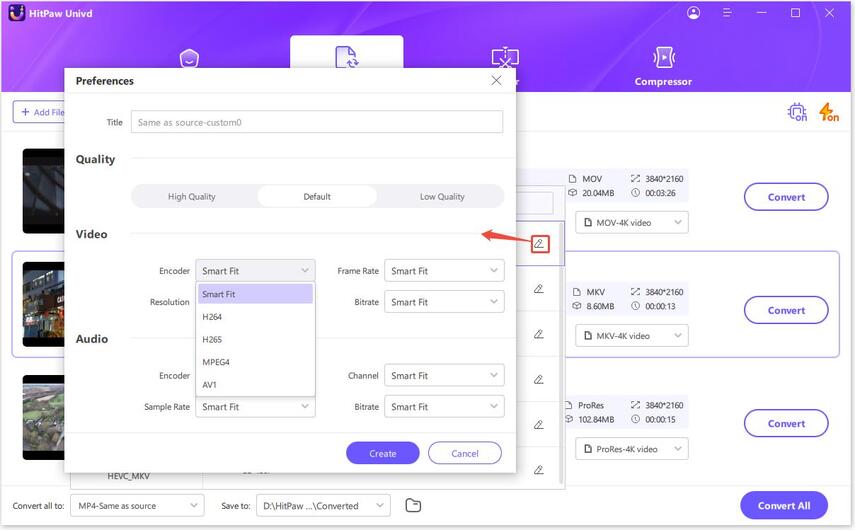
Step 5:
Once you're satisfied with your selections, click the "Convert" button to initiate the video conversion process. HitPaw Univd will display the progress bar, allowing you to monitor the conversion.
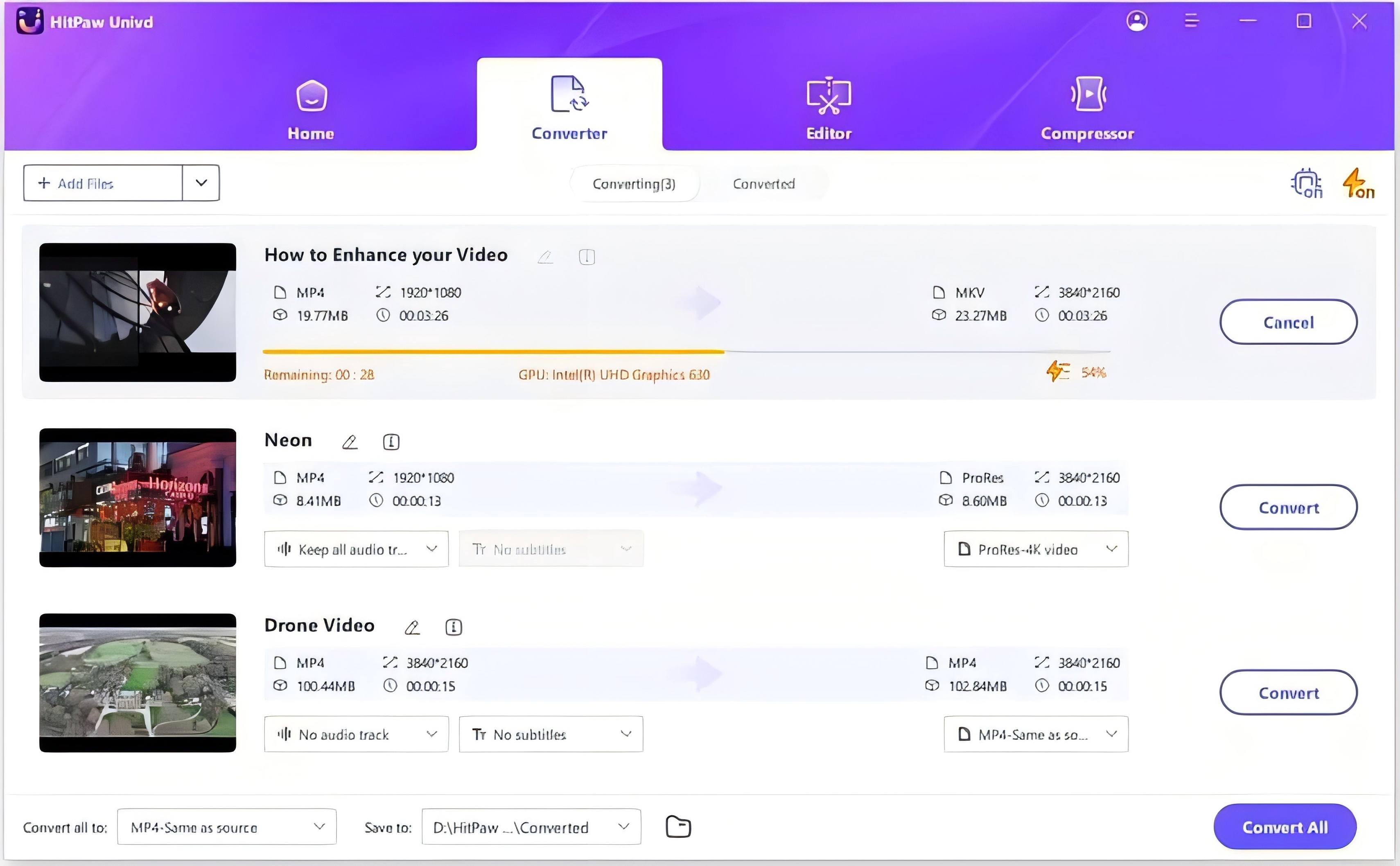
Step 6:
Upon successful conversion, HitPaw Univd will display a notification. You can access the converted video by clicking the "Converted" tab or navigating to the designated output folder specified in the software settings.
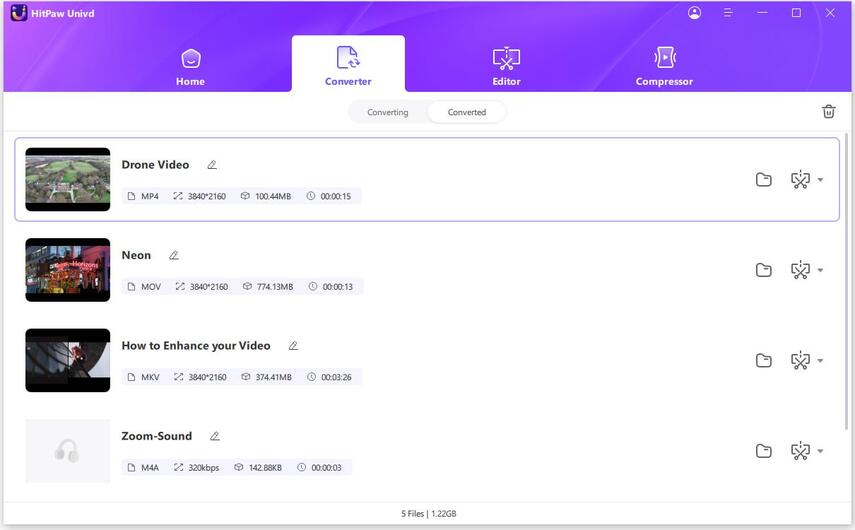
FAQs
Q1. Which software is faster, FFmpeg or HandBrake?
A1. The speed can vary depending on the complexity of the conversion and hardware used. FFmpeg can be potentially faster due to its more direct approach. However, HandBrake's preconfigured settings may optimize speed for basic conversions on some systems.
Q2. Can I use FFmpeg or HandBrake to edit videos?
A2. While both FFmpeg and HandBrake primarily focus on video conversion, they offer limited video editing capabilities. FFmpeg allows for basic editing through command-line options, while HandBrake offers simple trimming functionalities. For comprehensive video editing, dedicated video editing software is recommended.
Conclusion
Choosing between FFmpeg and HandBrake depends on your technical expertise and conversion needs. FFmpeg caters to advanced users who require granular control and a vast array of formats. HandBrake simplifies conversion for beginners with its user-friendly interface and preconfigured settings.
For a well-rounded solution that combines the power of FFmpeg with the ease of HandBrake, consider HitPaw Univd. Its intuitive interface, extensive format support, customization options, batch processing, and additional features make it a versatile tool for all your video conversion needs.
So, whether you're a seasoned techie demanding precise control or a beginner seeking a user-friendly experience, explore the options presented in this guide to find the perfect video converter for your workflow!






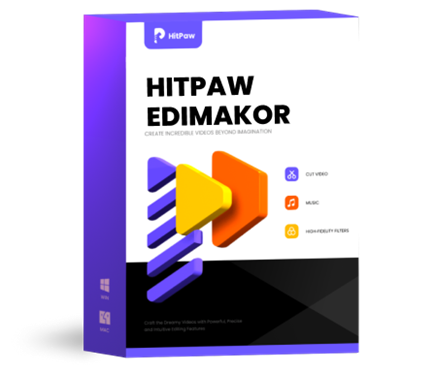 HitPaw Edimakor
HitPaw Edimakor HitPaw VikPea (Video Enhancer)
HitPaw VikPea (Video Enhancer)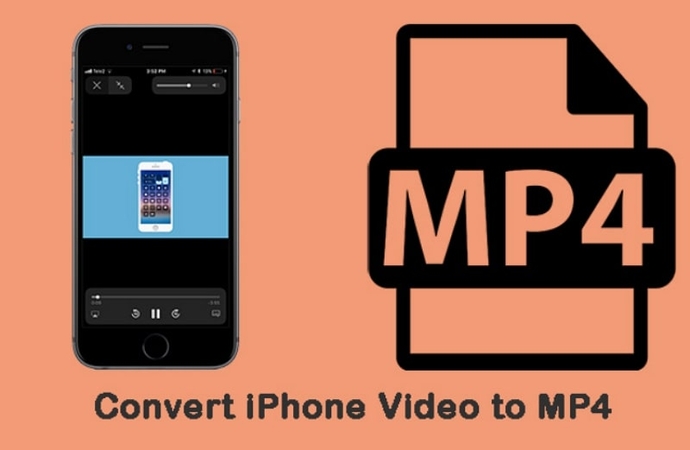
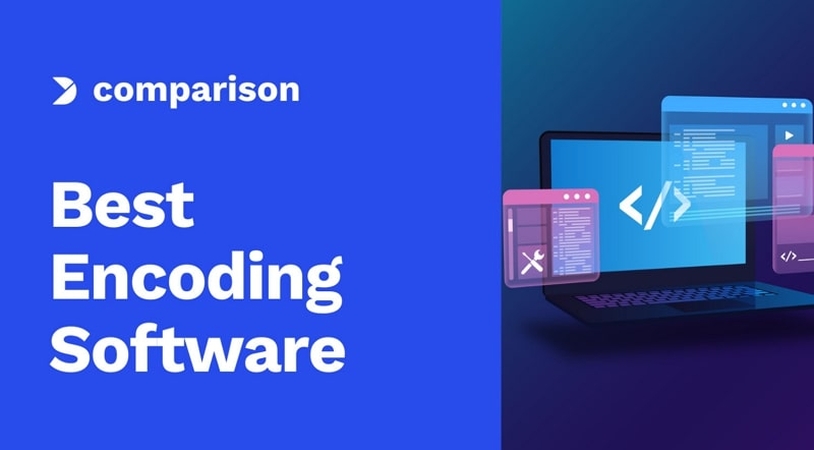
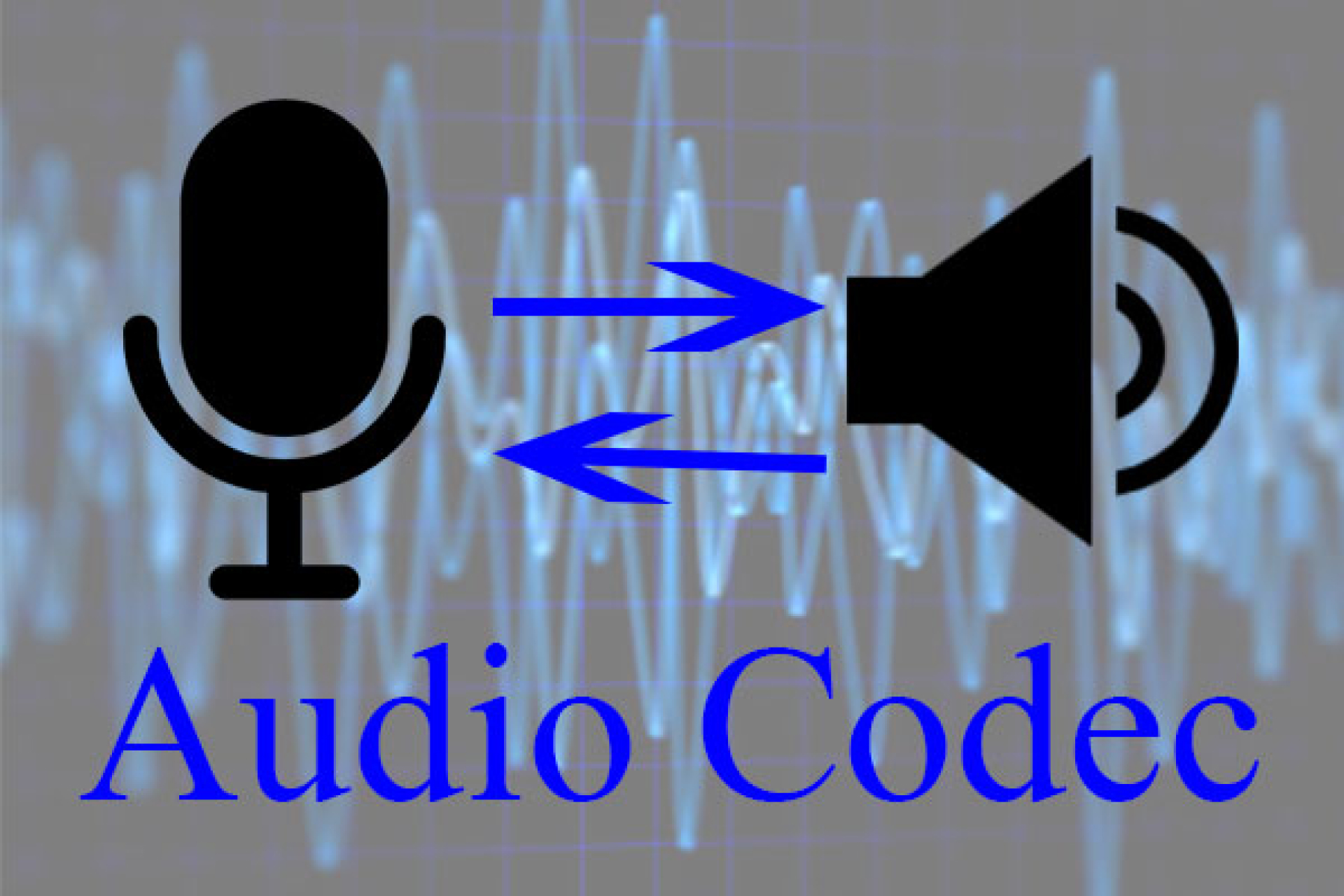

Share this article:
Select the product rating:
Joshua Hill
Editor-in-Chief
I have been working as a freelancer for more than five years. It always impresses me when I find new things and the latest knowledge. I think life is boundless but I know no bounds.
View all ArticlesLeave a Comment
Create your review for HitPaw articles